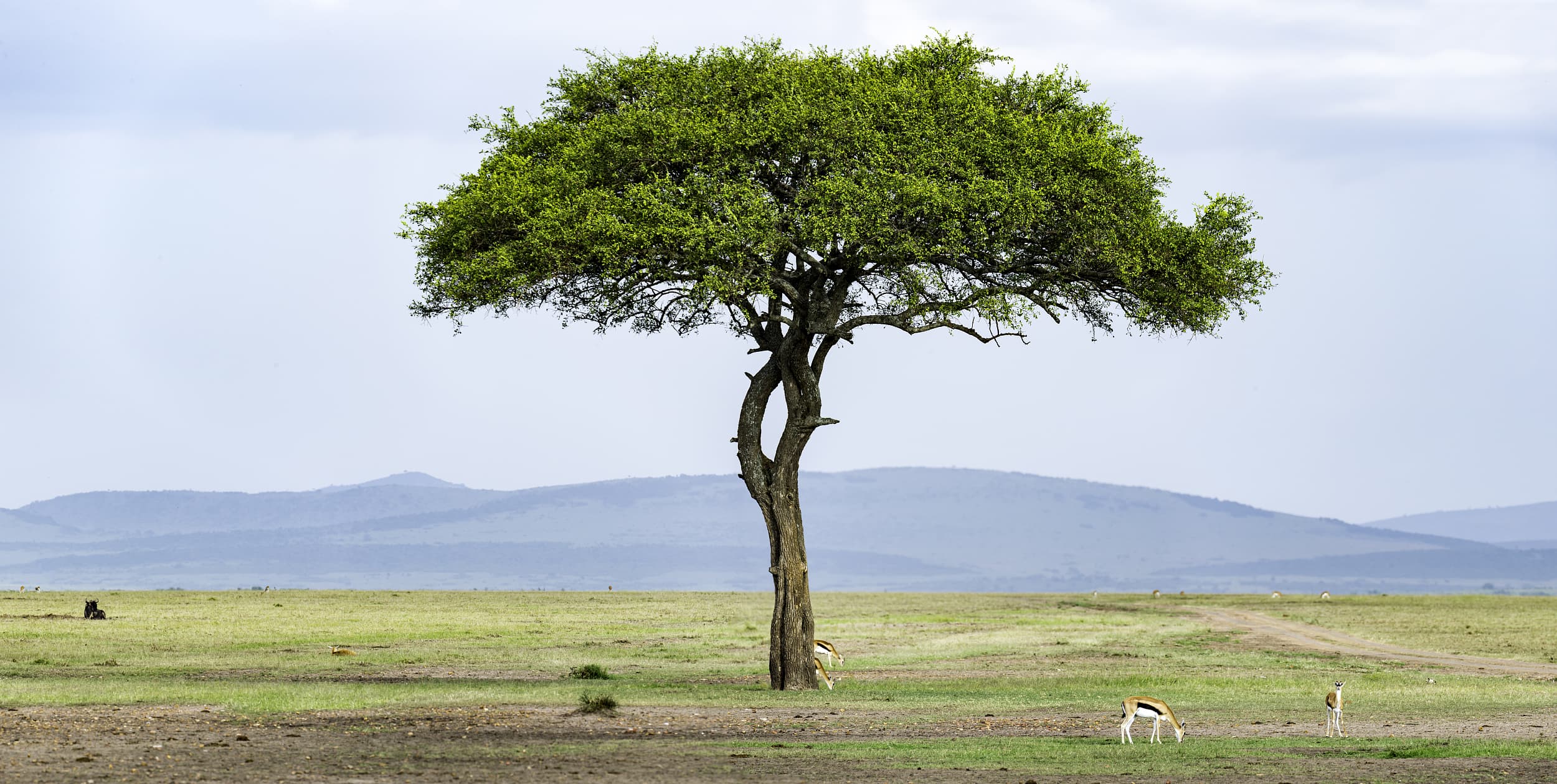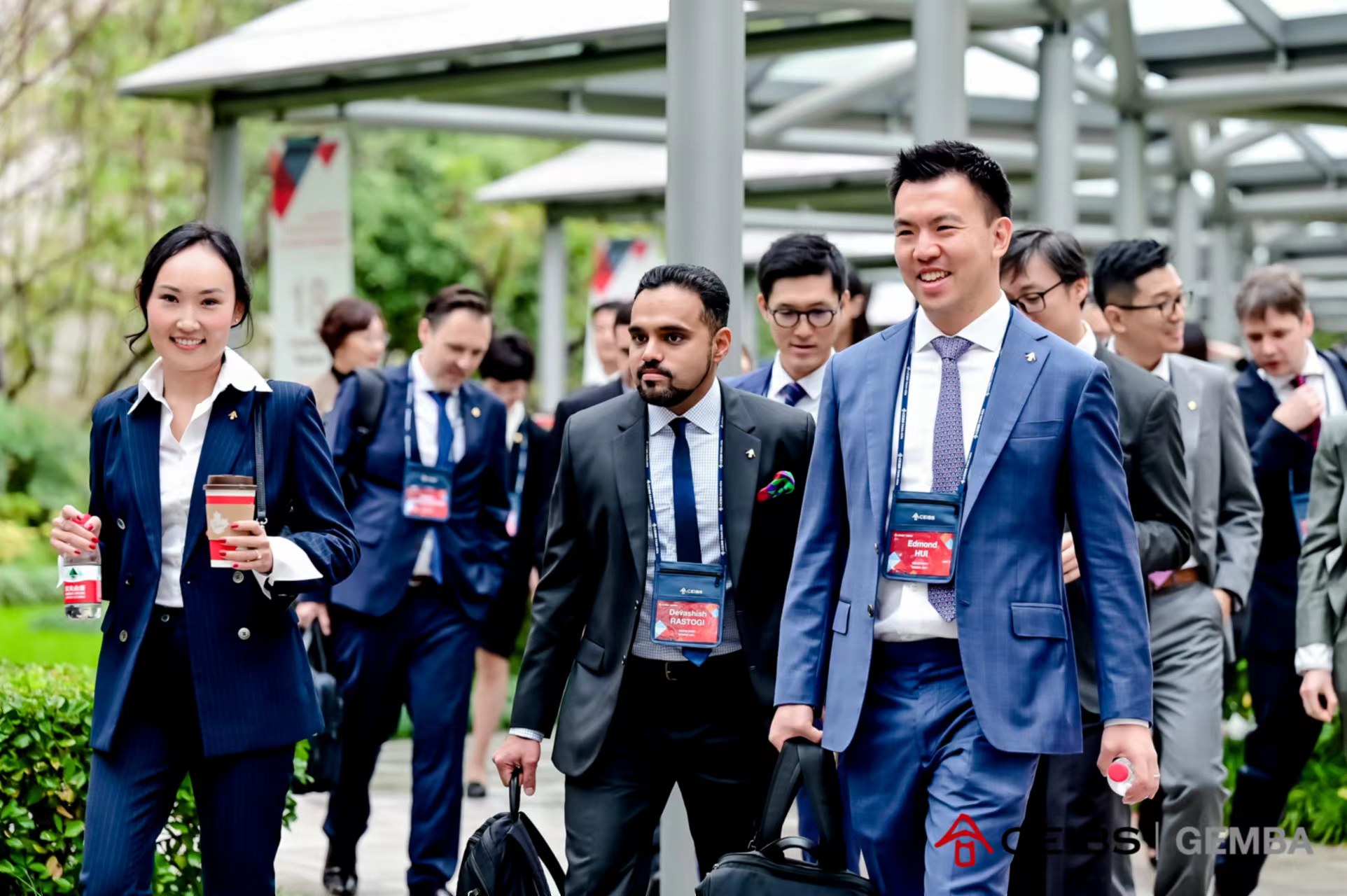Talking Tech Investment with Founder of Acacia Venture Capital

The Acacia is a tree that can be found around the world, and it thrives even in challenging conditions and climates. What better symbol then, for a dynamic venture capital firm that aims to bring the best of China to the world, and vice versa?
This was the thought process that led Edmond Hui (CEIBS Global EMBA 2021) to found Acacia Venture Capital Partners in a bid to bring his knowledge of China to an increasingly fast-paced and interconnected global investment market.

1. From plateau to quick growth – Founding Acacia
Edmond has extensive experience in the international banking and investment world. By 2016, his career had taken him from advising large-cap FTSE 100 and private equity clients to managing funds for China's largest real estate developers and executing the brokerage of major hotel transactions.
From there, Edmond pivoted towards technology-based investments, a pathway that allowed him to see firsthand just how quickly new tech trends could dominate the development of entire industrial sectors, providing unprecedented opportunities for those with the ability to spot what is coming next. After 12 years in various banking and investment companies, the time was ripe for a more dramatic change of circumstances.
“2016 was a pivotal year for me,” Edmond explains. “Our Fund 1 technology investments put us into perhaps the top 5% of all venture funds operating in that cohort. It really opened my eyes to the possibilities of tech-based investment but it also gave me the push (and helpful track record) I needed to start my own fund – a long-held dream of mine. While I loved what I had been doing, I felt I'd hit a plateau and it was time to make that dream a reality.”
In 2020, Acacia Venture Capital Partners was born. After years of quietly collating a list of contacts and peers he respected enough to want with him on his fledgling fund, Edmond assembled his dream team and set up shop in Shanghai – planting the first seed of Acacia. Investment flowed in quickly, and success followed fast on its heels. One of the fund's first major investments was in Rappi, a Columbia-based delivery startup whose explosive growth propelled it into becoming one of Latin America's first unicorns, netting Acacia a 30-times return on investment in just five and a half years.
Further stand-out successes followed. After Rappi, Acacia invested in 99 Minutos, another Latin America last-mile logistics firm, which grew from a $35 million valuation to around $650 million in two years. It was clear that Acacia had a knack for finding value in regions and technology spaces where others weren't looking. But what allows Edmond and his team to find that supercharged growth prospect among seemingly endless alternatives?

Edmond at the São Paulo Module, an exchange-seat module between IESE and CEIBS GEMBA
2. Geographic arbitrage – Transplanting successful formulas across the world
Find what works, then look for opportunities to replicate it elsewhere. It sounds simple in principle, but geographic arbitrage is an approach that requires a precise combination of foresight, market knowledge and timing to accurately predict when a given country or region is about to experience a particular growth trend similar to an established pattern elsewhere. Edmond explains how it works and why it's a model that Acacia returns to, again and again, when deciding on new investments.
“The norm for investment firms used to be simply copy and paste strategies from America to China. But now China is a world-leading country in many different industries, so we can look at China as a petri dish or proxy, while trying to find similar opportunities in emerging markets. China has a highly sophisticated and widespread ecommerce system backed up by immaculate logistics and payment platforms. But that big growth phase is over now, as the market has matured. So, we looked towards Latin America, the world's fastest growing region for e-commerce right now. Latin America is perfectly placed to learn from China's ecommerce experience, and all signs point towards a continued upswing in the size and sophistication of everything from last-mile logistics to financial services. Identifying these conditions through geographic arbitrage is what helps us find that outstanding 1 in 10,000 investment prospect.”

3. Being the Bridge between China and the World
Much like CEIBS itself, Edmond thinks of Acacia as a bridge that allows the rest of the world to better understand China's economic development journey and what it has to offer to its partners at every level. Of course, a good bridge allows traffic to flow in both directions, and so the Acacia team is always analysing how global technology trends may influence China, as well as how China-made tech will continue to impact the rest of the world.
This company culture of maintaining a global mindset is aptly demonstrated by the diverse international makeup of the Acacia team. An agile organisation of around 15 people, its members hail from across Asia, North America and Europe. This is by design, as Edmond feels strongly that such diversity of experiences and backgrounds pays dividends when it comes to determining the direction of the fund.
“While we all have extensive China experience, we can bring a wide range of other national and cultural experiences into the conversation. We challenge each other, we compare and cross-reference our viewpoints, all without a fixed initial stance. This is invaluable when it comes to picking investments, because it helps us look beyond any single bias and lets us see the landscape for what it truly is. This leads to more informed, intelligent decision making, and – at least so far – better investment outcomes.”
Alloying the strengths of his team is a vital part of Edmond's ongoing development of his leadership potential, something that drew him to join the Global EMBA programme at CEIBS. After Acacia's founding, he decided that a more complete understanding of his leadership capabilities would be a necessary part in taking the fund to the next level by elevating the performance not just himself, but his whole team.

“Self-improvement, learning and growing, are things we should seek throughout our life but especially when we try to do something new. I was attracted to the Global EMBA (GEMBA) programme because it lets you take a comprehensive look at what business is really like today, and understand how you can navigate it better. Where are your blind spots? Where are your true strengths and how do you bring them out in the people who trust you to lead them? What I really love about what I've learned so far at CEIBS is that I know how I can bring it back to Acacia; I can solidify those lessons and everyone in the organisation can benefit from them.”
Fresh from the GEMBA Global Module in Accra, Ghana, Edmond is already excited about looking further into what makes Ghana (and the wider region) such a hotspot for tech-based innovations. Thanks to its young, dynamic population with an ingrained cultural affinity for entrepreneurialism, Ghana is perfectly placed to adopt emerging technologies, leapfrogging several steps of now outdated infrastructural setups and becoming a more flexible, adaptable economy as a result. Seeing this firsthand reminded Edmond of China's own economic growth pattern in decades past.

Edmond at the CEIBS GEMBA Africa Module
“Exploring Africa, and Ghana specifically, for the first time was an incredible experience. While there are challenges here like everywhere else, it's also a highly dynamic economy that's rife with opportunities. Meeting young, innovative Ghanian businesspeople demonstrated how important Africa-centric business ideas will become in the near future. While there's something of a 'missing middle' in terms of manufacturing scale, there are some striking similarities between leading African economies and China 20-30 years ago, when it was poised for rapid urbanisation, a massive surge in real estate development and other significant facets of swift economic growth. It was fascinating to see, and we'll definitely be looking at Africa closely through a geographic arbitrage lens.”
4. Putting down roots – Acacia's future growth plan
Buoyed by the success of their first two funds, Edmond and the Acacia team are currently raising investment for a third. Hitting their stride, this third fund will be crucial in solidifying the firm's track record and demonstrating the reliability of their investment approach. Looking beyond the immediate future, Edmond remains excited at the prospect of growing Acacia's footprint both in and out of China.
“Currently we're trying to create a consistent, repeatable way of getting market-leading returns for our investors. Beyond that, success for me would be Acacia becoming synonymous with early stage investing within China, Latin America, North America and Europe. On a more granular level, we're looking forward to growing the team to be stronger here in Shanghai, maybe opening an office in Latin America or San Francisco in the future – getting some boots on the ground there would be great. Then we want to encourage more companies to invest in China; that's our overriding reason to be, helping companies come into the China market and then realising value for them. There's a whole virtuous cycle there, and if we can achieve all of those outcomes, I think our stakeholders will be quite happy.”
As emerging technologies continue to reshape entire industries and capture the imagination of world-class innovators, look out for Acacia's next big moves in an investment landscape that is never short of surprises.













